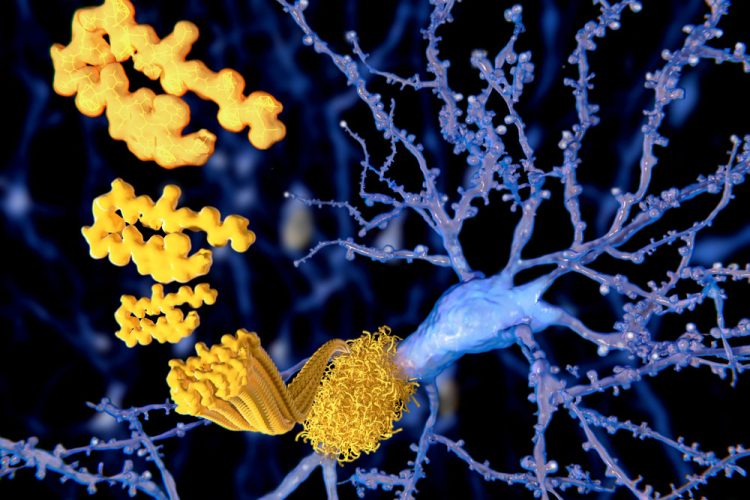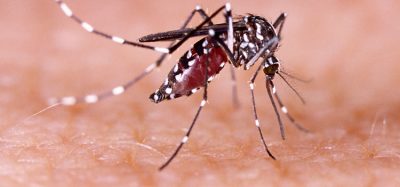Promising development of new drug to treat Alzheimer’s disease
Posted: 11 October 2024 | Drug Target Review | No comments yet
In lab and fruit fly studies, the new peptide inhibitor effectively acted on both major aggregation-promoting hotspots of Tau proteins.


Scientists at Lancaster University, University of Southampton, Nottingham Trent University, Tokyo Metropolitan Institute of Medical Science and the University of Texas Southwestern Medical Centre have developed a peptide inhibitor named RI-AG03, that effectively acted on both major aggregation-promoting hotspots of Tau proteins in lab and fruit fly studies.
Tau proteins are essential for maintaining the structure and function of neurons. However, they malfunction in Alzheimer’s disease (AD), clumping together to form long, twisting fibrils. Accumulation of these fibrils create neurofibrillary tangles which clog the neurons and stop them from receiving the nutrients and signals they need to survive.
Therefore, as more neurons die, memory, thinking, and behaviour become increasingly impaired, resulting in cognitive decline. This clumping typically occurs on two specific ‘hotspots’ of the Tau protein. Current treatments target one or the other of these ‘hotspots,’ but the new drug RI-AG03 uniquely targets and blocks both. Also, the drug is more targeted, improving its safety and lessening side effects.
Biomarkers aren’t just supporting drug discovery – they’re driving it
FREE market report
From smarter trials to faster insights, this report unpacks the science, strategy and real-world impact behind the next generation of precision therapies.
What you’ll unlock:
- How biomarkers are guiding dose selection and early efficacy decisions in complex trials
- Why multi-omics, liquid biopsy and digital tools are redefining the discovery process
- What makes lab data regulatory-ready and why alignment matters from day one
Explore how biomarkers are shaping early drug development
Access the full report – it’s free!
Dr Anthony Aggidis, former Postdoctoral Research Associate at Lancaster University and visiting researcher at the University of Southampton, explained: “We know that the toxicity of the Tau protein is intimately linked with its ability to aggregate, so by inhibiting aggregation we expect to see desirable effects. But current aggregation inhibitors have had many side effects because they can interfere with the functions of many other proteins. RI-AG03 is specifically designed against the Tau protein, meaning it’s less likely to undesirably interact with other proteins.”
Notable results
The researchers at the University of Southampton tested RI-AG03 in fruit flies with pathogenic Tau. These fruit fly models were generated by Dr Shreyasi Chatterjee, Senior Lecturer at Nottingham Trent University. The drug suppressed neurodegeneration and extended the lives of the flies by around two weeks which was a notable extension considering the life span of the insects.
Amritpal Mudher, Professor of Neuroscience at the University of Southampton, said: “When we didn’t feed the flies with the peptide inhibitor, they had lots of the pathogenic fibrils, which group together to make up a tangle. But when we fed them with the drug, the pathogenic fibrils decreased significantly in quantity…The higher the dosage given, the greater the improvement we saw in the fruit fly’s lifespan.”
Then, scientists at the University of Texas Southwestern Medical Centre assessed the drug in a biosensor cell to ensure these results were not unique to fruit flies and saw that RI-AG03 successfully penetrated the cells and reduced the aggregation of Tau proteins. Moving forward, the team plan to test RI-AG03 in rodents, before proceeding to clinical trials.
The research was funded by the Alzheimer’s Society UK. Dr Richard Oakley, Associate Director of Research and Innovation at the Society, concluded: “It’s important to note that the study is in its early stages, so we don’t yet know if it will work or be safe for humans, but it’s an exciting development and we look forward to seeing where it leads.”
This study was published in Alzheimer’s & Dementia: The Journal of the Alzheimer’s Association.
Related topics
Drug Development, Neurosciences, Peptide Therapeutics, Protein
Related conditions
Alzheimer's disease (AD)








